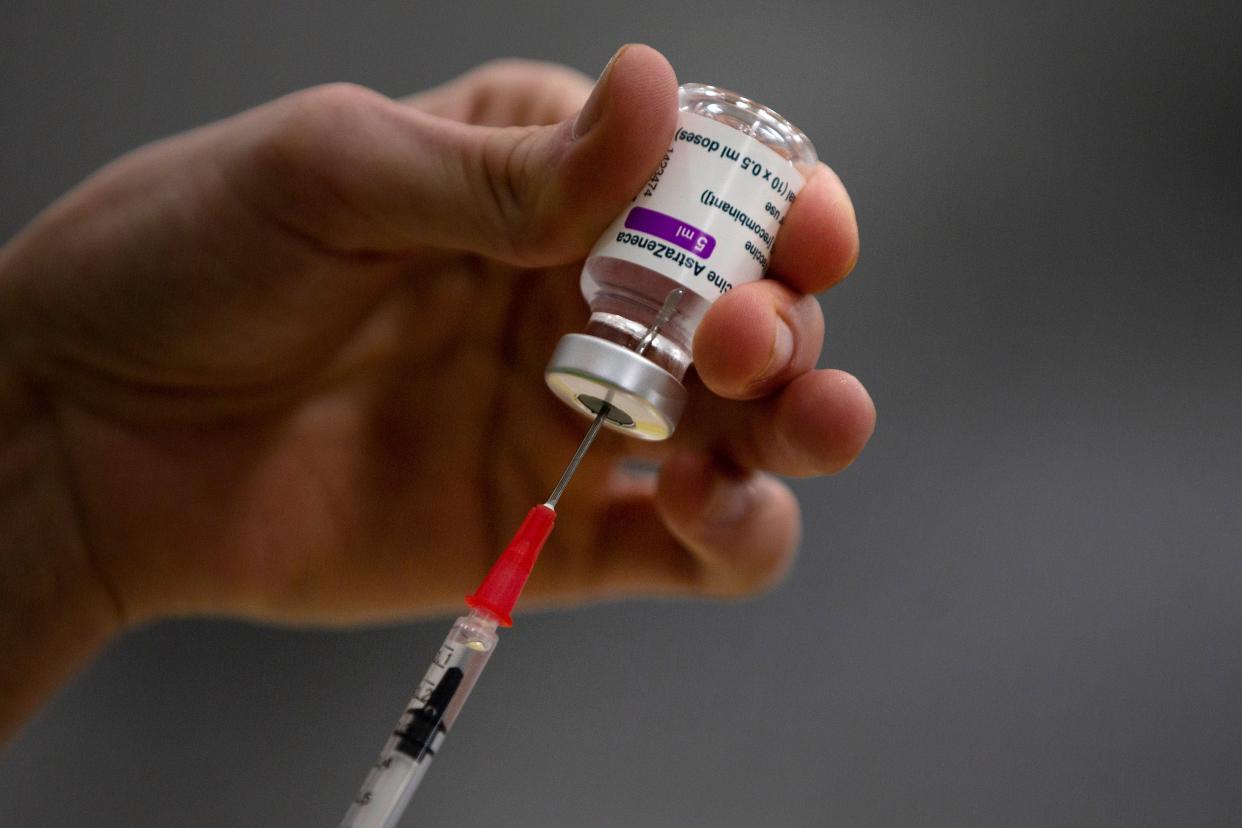Vaccine shortage to shut down some centres next week and delay second-dose jabs

All jabs in Nottinghamshire stopped until 15 March
(Copyright 2021 The Associated Press. All rights reserved)A shortage of coronavirus vaccine has led to the cancellation of second-dose appointments for NHS staff and the suspension of all vaccines across parts of the east Midlands, The Independent has learnt.
NHS England warned hospitals, GPs and vaccine centres this week to expect a drop in supply, ahead of a significant increase in stocks the week after which could see vaccination rates double.
Ministers have warned the UK’s vaccine rollout would experience variation in supply. The latest data shows almost 21 million people have now been given their first dose, with almost 1 million having had their second.
The number of vaccinations has tailed off in the lass few days with 278,000 first doses given on Wednesday compared with almost 450,000 on the same day a week earlier.
In Nottinghamshire all vaccinations, including at a mass inoculation hub in the Richard Herrod Centre, have been stopped until Monday 15 March.
A message to staff warned this was “due to unforeseen supply issues”. On the booking system for Nottinghamshire there were no available slots at any GPs or NHS hospital sites either.
In Warrington, staff at the Warrington and Halton Hospitals Trust were warned on Wednesday that appointments for second doses would be cancelled.
The trust apologised to staff in an email on Wednesday evening, adding that “we need to match the appointments to the vaccine supply.”
It said: “Vaccine allocation planning for the second dose is underway, in line with regional and national guidance.
“To ensure no wastage this means that all second dose Covid-19 vaccinations currently booked for week commencing 8 March will be rescheduled by the Covid-19 vaccination team to week commencing 15 March.”
The email said staff would all receive their second dose within the 12-week recommended timeframe and that there were no plans to change bookings from 15 March.
Frontline NHS staff have expressed concerns over delays in getting second doses. One member of staff at the trust told The Independent: “They are rescheduling us to the exact 12-week mark with no leeway.”
NHS England has warned hospitals and GPs to prepare for a shortage in supply next week but added this will increase significantly in the week after.
In a letter sent on Tuesday, Emily Lawson, NHS England’s director responsible for the vaccine rollout, said: “There will be minimal allocations of new vaccine in the first part of the week commencing 8 March, reflecting national supply available to the programme. However, we are expecting substantial increased supply in the volume of vaccine available into week of 15 March.
“For the week of 8 March in particular, allocations available to sites for first doses allows for some focus on groups to whom vaccination delivery is more complex and time intensive. It also provides an opportunity for all sites to end the week in a near-zero stock position.”
The letter added: “From 11 March, vaccine supply will increase substantially and be sustained at a higher level for several weeks. Therefore, from the week of 15 March we are now asking systems to plan and support all vaccination centres and local vaccination services to deliver around twice the level of vaccine available in the week of 1 March.”
A spokesperson for Warrington and Halton Teaching Hospitals said the reason for the change in appointments for staff was to avoid wastage of the Pfizer vaccine as once opened boxes could not be split across weeks
They added: “We can confirm we have no problems with shortage of vaccine supply and have vaccination clinics booked and running over the coming weeks for staff and patients.”
Read More
Coronavirus infections fall in England by two thirds during lockdown, research finds
Hospitals failing to heed warnings over patient deaths, reveals new study
Dozens of patients left conscious but unable to breathe after NHS drug errors

 Yahoo News
Yahoo News 
